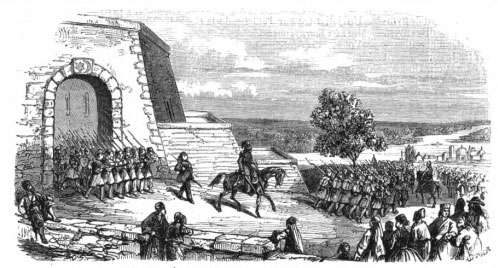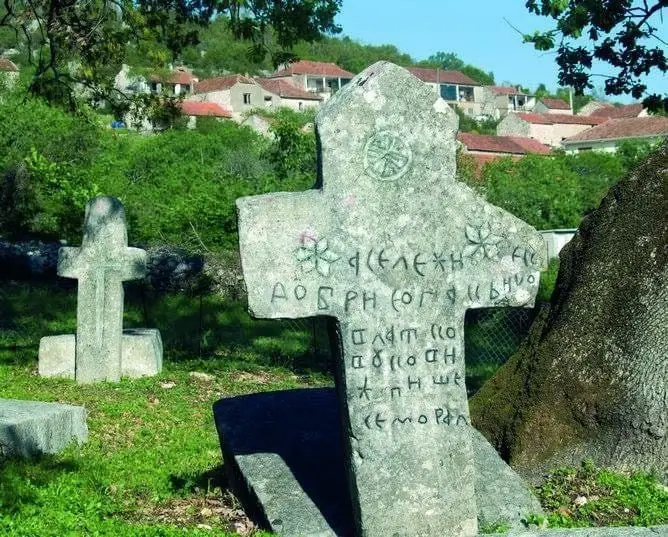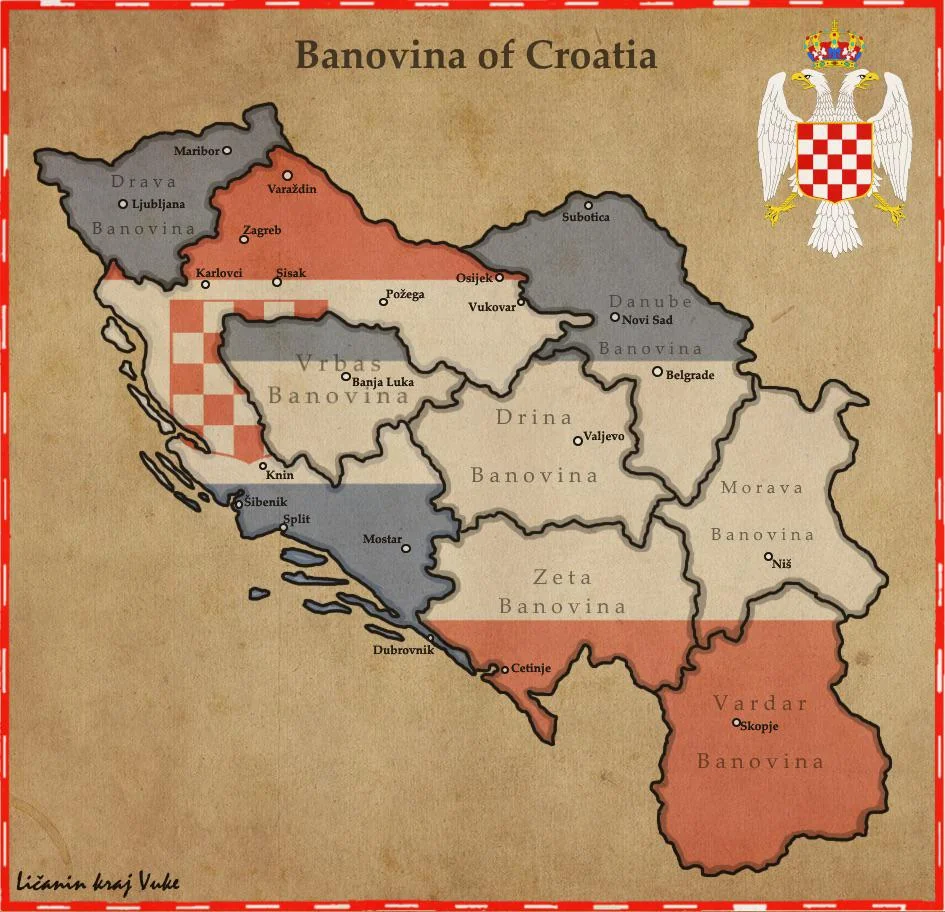[On the Departures to the Porte]
At the beginning of his reign, he was guided by his mother’s prayers and inherited his father’s dignity, appearing as the brightest ruler of the world. However, not all was perfect, for the devil, who always sows tares, incited a great struggle among some nobles whom his father had subdued under his feet – they sought to equal him and escape from under his authority; and they concocted many grave accusations against him, presenting them to Bayezid, some saying that he was raising the Hungarians against him, while others claimed they were independent and wished to serve his [Bayezid’s] state. And they sent messengers, one of whom was named Mihailo, always being noble and faithful to Stefan, and he found himself face to face with those who slandered him and raised rebellion.
And these were Nikola Zoić and Novak Belocrkvić with some others. And Novak, summoned [by Stefan], came, not knowing at all that his deeds had been discovered. He was handed over to death, and [this was done] justly. But Nikola fled to the fortress of a town called Ostrovica; seeing that it was impossible to escape from the hands of his masters, he cut his hair and took on the monastic habit, along with his wife and children – with four daughters. And thus, having mercy, this pious [despot Stefan] with their mother left them in complete safety.
And these were Nikola Zoić and Novak Belocrkvić with some others. And Novak, summoned [by Stefan], came, not knowing at all that his deeds had been discovered. He was handed over to death, and [this was done] justly. But Nikola fled to the fortress of a town called Ostrovica; seeing that it was impossible to escape from the hands of his masters, he cut his hair and took on the monastic habit, along with his wife and children – with four daughters. And thus, having mercy, this pious [despot Stefan] with their mother left them in complete safety.
And because of this, the faithful lady [Milica] herself went to Emperor Bayezid; she had with her her relative, the former wife of despot Uglješa, and the daughter of some caesar. [Despotess Jelena (in monasticism Jefimija), daughter of caesar Vojihna, wife of despot Jovan Uglješa] This one, being the wisest in many words and matters and always mentioned [Milica] was considered as a pillar and help, especially in such a matter that had occurred. When they were summoned to the emperor [Bayezid] and [Milica] was terrified of seeing the emperor. [Jefimija] told her: “Cast aside all fear, when they [only] deigned us to see him.” They then wisely completed all their needs with the help of the Mother of God, in whom they placed their hope.
After this, the pious and always remembered Prince Stefan also went, still in fear, having agreed to be friends with the Hungarians on the advice of some. And when he saw that his intention for the future would be impossible, he consulted with his pious mother; having come to the East [to Sultan Bayezid], here it was according to Solomon, “the king’s heart is in the hand of God,” [Proverbs of Solomon, 21, 1] by your goodness, Lord, because of the matter from which he trembled and was terrified; therefore, he concluded everything favourably and transformed unbridled anger into mercy and love [thus] that he advised and taught him with the kindest words, as if he were his dearest son.
When hе came to Bayezid, it was customary for everyone gathered to leave after the meal; this one did not want to leave, but stood standing. And when asked by the emperor for the reason, he replied: “Master, instead of someone slandering me before your power, I will myself confess my wrongdoing, which some had reported to Your Empire that I had deserted your state’s service and that I am a friend to the Hungarians. Having reconsidered that the matter was inappropriate, I remembered the upbringing, your power, and the oath and came. Here, my life is in your hands before God; do as you wish.” After pausing for a moment, admiring, he responded with sweet words: “Oh dear! What did you want to achieve with the Hungarians? For I intended to take the land as my own. And what will you do there? Who among those who rule and bowed their head before the Hungarians achieved anything in their dominion?” And he mentioned by name the Bulgarian emperors and others. “And you,” he said, “being with me and even if you go where I do not, you indeed get confused. And if you go with me where I am, you need not be confused. We are rulers, and if we do not go against others, others will not come against us. For the strongest empires are maintained and expanded by armies. I now consider you as the eldest and beloved son and announce before all – mine and the eastern ones. For who is in such honour with me as you? I am already old. Therefore, either I will die in battle or from illness. And thus living with me [in] time you will then gain. Many of my sons will rise brother against brother and each of them will send petitioners to you for help, or just for love, and not hostility. Having awaited this time, you will maintain not only your own regions but also conquer other areas around your entire land, and you will be called great and glorious ruler. And now you will hold your land within your borders. Listen to me and I will tell you what you need to do. While I am alive, strive and subdue your mighty and bring them to your will, for then (after my death) you will want and will not succeed. Therefore, elevate either the noble or the lowly among your people, and make them glorious so that they may rule together with you. And silence all the ill-tongued ones and those like them.” With such and many words the emperor taught him, Stefan went to his house, and, oh wonder! Who has heard or seen such a thing anywhere? He, who came as accused and ready for death, received authority as a son from the emperor! And what advice, and not from the unfaithful! Who has ever heard such prophecy from a speaker of tongues?! For everything happened in our days so that all across the regions could see, since it was neither hidden nor happened secretly, but was carried out before the face of the universe. And let no one think it unusual that we compare the words of a man, an Ismailian, with prophecies; such should look at the prophecy of Caiaphas, who said: “It is better for one man to die for the people.” [Gospel of John, 18:14.] And the supreme [apostle Peter] says: “No prophecy of scripture is of any private interpretation, nor did any man prophesy at any time by his own will.” [Second Epistle of Saint Apostle Peter, 1:20.]



